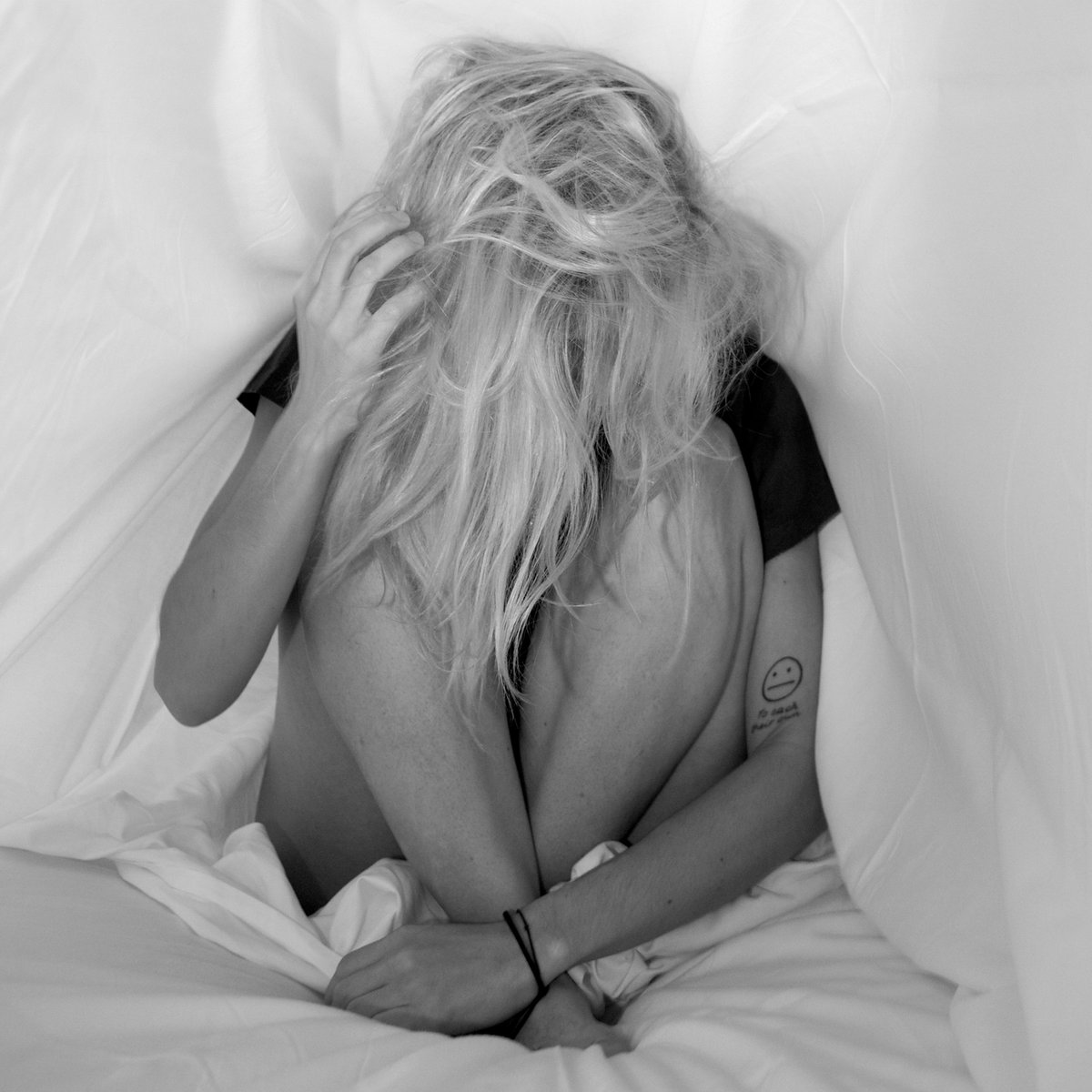
I don’t like getting screamed at, but I’ll let Alicia Bognanno do it to me. Her atavistic roar is fully unleashed in Bully’s latest album, Losing. It’s a conduit of frustration and anger, it’s an act of catharsis. It approaches a feeling I can only express when I scream into a pillow, but Bognanno and her bandmates make no attempt to muffle the sound. And that’s exactly how it should be.
This second release seems to be more Bognanno’s album than the band’s. Clayton Parker (guitarist), Reece Lazarus (bassist), and Stewart Copeland (drummer) happily provide the anxious/grungy musical texture for Bognanno’s personal lyrics. She is there to break down her feelings: she confronts trauma and loss,and it seems just as much for herself as it is for all women. It’s almost like together we move through the five stages of grief, or sit through an extended therapy session. This is an album about being unflinchingly honest and about healing.
It opens with “Feel the Same,” a beginning that feels almost tentative and apathetic, as if Bognanno is waking up to herself. That stasis is shattered quickly as the chorus of “I feel the same” (despite x, y, and z) builds up to the yell we’ll become familiar with. She is fighting against that nothing-feeling, as we hear in the next track, “Kill’s to Be Resistant”: “Do you feel nothing?”
Do we feel nothing? I’d say we most certainly feel something. We feel the beginning of a challenge, that resistance against nothing-feeling, the fight against denial.
Losing may be a processing of feelings, but it’s not sappy and it’s not strictly angry. Bognanno reckons with emotion with a nonchalance that makes vulnerability feel cool and okay. In “Running,” Bognanno admits, “I get anxious too,” and conveys the weirdness and discomfort with going back to her hometown, coping with its “solid, steady existence.” She’s being real with us, prompting us to be real with ourselves, urging people to stop pretending.
And then there comes the breakthrough. Bognanno faces her trauma and reclaims her power in “Seeing It,” a track that features heavy distortion, mirroring the internal distortion that trauma creates: “Such a blurry place to be/Stuck in your own body.” This is a chilling moment, her remembrance and confrontation, but it is also where her voice is most prominent (literally and metaphorically): “I didn’t want to/I should put this on you.” This is the explosion, the climax, the moment where she acknowledges the things that have happened to her and can thus begin to deal with that pain.
“Hate and Control” is a perfect ending, a song that I’d venture to name an athem. Though for the duration of the album we’ve been witnesses and passive participants in the healing process, it is in this track that we can fully engage–Bognanno addresses the social and cultural context of the work. It is as if she is performing on behalf of womankind, singing “What is it about me that makes you so uncomfortable?/Can we just exist without your hate and control?” This is where we begin to see how the individual traumas and injustices served at the hands of men are inextricable from a broader cultural issue, a broader culture that lacks respect for women. Bognanno is leading the way, using her voice, and challenging us to do the same. No longer will women be subservient or subdued. We are angry. It is our time. As Bognanno sings in a line that so aptly summarizes the album and the time we’re in: “You don’t like it when I’m angry?/Tough shit, learn to deal.”

